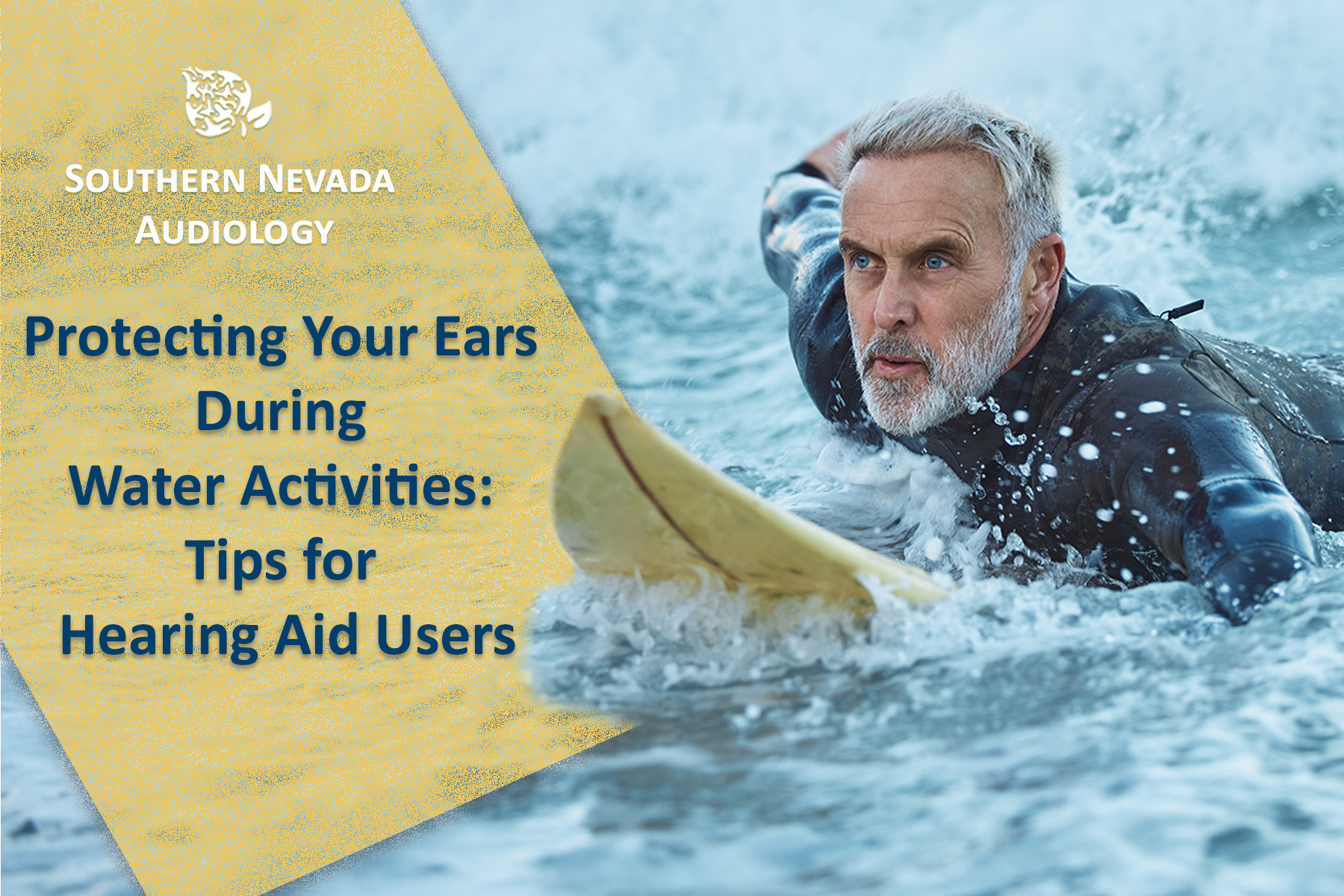With Las Vegas’ scorching temperatures in the triple digits during the summer, engaging in water activities can provide a refreshing escape. However, it’s vital to prioritize the protection of your ears and hearing aids during such experiences. While swimming, snorkeling, or participating in water sports, it is generally recommended to take proper precautions to ensure the safety of your ears and hearing devices. In this article, we will offer valuable guidance on safeguarding your ears during water activities and address the question of whether to remove or keep your hearing aids in place.
Understand the Risks
Water activities can pose risks to your ears and hearing aids due to moisture exposure. Prolonged exposure to water can damage hearing aids, causing malfunctions or rendering them inoperable. Additionally, water can lead to ear infections and other complications if not properly addressed.
Consult Your Audiologist
Before engaging in water activities, it’s important to consult your audiologist for personalized advice. They can assess your specific hearing aid model and guide you on whether it is suitable for use in or around water. Audiologists may recommend waterproof or water-resistant hearing aids, protective covers, or alternative solutions to ensure your devices remain safe and functional.
Waterproof or Water-Resistant Hearing Aids
If you’re an avid water enthusiast, investing in waterproof or water-resistant hearing aids can be a game-changer. These devices are designed to withstand exposure to water, offering increased protection and durability. Make sure to consult your audiologist to determine the best options available that suit your lifestyle and needs.
Protective Covers
For individuals who prefer to keep their current hearing aids during water activities, protective covers can offer an extra layer of defense. These covers are usually made from waterproof or water-resistant materials and help shield the devices from moisture. They are particularly useful for activities like swimming, where direct water contact is frequent.
Consider Removing Hearing Aids
In situations where complete water submersion is involved, it is generally advisable to remove your hearing aids. Whether it’s diving, surfing, or participating in other water sports, the pressure, impact, and prolonged exposure to water can pose a risk to your hearing aids. Removing them before these activities can prevent potential damage.
Store Hearing Aids Properly
When removing your hearing aids, ensure you have a safe and dry storage solution readily available. Use a waterproof or water-resistant case or container to keep your devices protected while you enjoy your water activities. Always follow the manufacturer’s instructions for storage and maintenance to prolong the lifespan of your hearing aids.
Dry and Clean Your Ears
After water activities, it is essential to dry your ears thoroughly to prevent moisture-related issues. Use a soft towel or a hairdryer on the lowest heat setting, maintaining a safe distance from your ears. Additionally, keep your ears clean by gently wiping the outer part with a clean cloth. Avoid inserting cotton swabs or any objects into your ears.
Taking care of your ears and hearing aids during water activities is necessary for maintaining their functionality and preventing potential damage. By understanding the risks, consulting your audiologist, and employing protective measures such as waterproof or water-resistant hearing aids and covers, you can enjoy water activities while ensuring the longevity of your devices. Remember, when in doubt, always consult your audiologist for personalized advice tailored to your specific needs. Stay safe and enjoy your water adventures!

